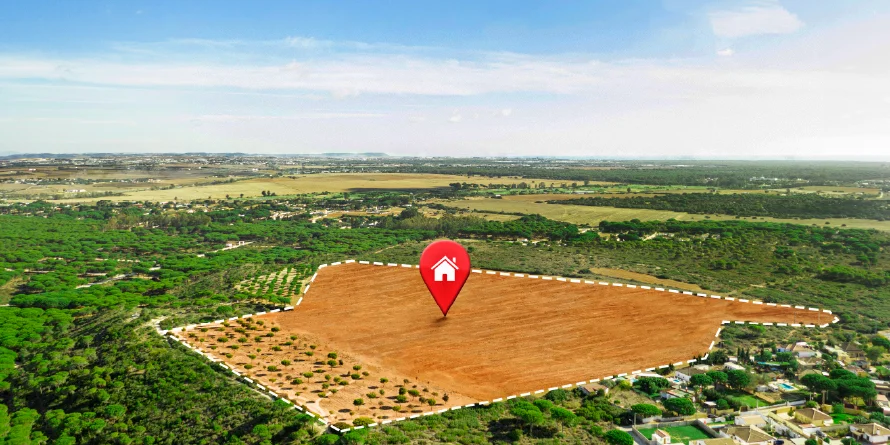
With India evolving into one of the fastest urbanising countries and steadily rising demand for real estate, land conversion has emerged as an important process for developers, as well as investors and prospective landowners. To put it simply, land conversion means the legal conversion of a land use from one type of use to another, predominantly, from agriculture to residential or commercial use.
In this blog, we will discuss what land conversion refers to, its types, the process followed, the legal and financial aspects, and the larger picture around it. Whether you have plans to purchase a plot for sale in Chennai or an investment property elsewhere in the country, you should have a working knowledge of legal land conversion laws to make sure you’re making an informed decision.
Land conversion is the process of changing the purpose of a piece of land through a legal process, from agricultural land to housing or commercial development. For Ex: This is a mandatory requirement in Indian land laws
If a cultivable land is used for a residential or commercial building without due conversion as required, you may end up paying a heavy penalty, cancellation of property registration, or demolition of the building.
Many times, property buyers also use tools such as the land area unit converter, conversion land area, and measurement converter land area to understand the correct plot size before proceeding with legal approval.
Several types of conversions of land units can be identified, according to the purpose of the transformation. Here’s a breakdown of the most common types:
This is the most common conversion of land measurement, especially in fast-developing cities. Farms are turned into residential development sites, houses, apartments, or villa projects.
Main requirements: Clearance of the District Collector/revenue department, remittance of land conversion charges, and compliance with zoning regulations.
Farmland is transformed into commercial spaces such as shops, malls, offices, or warehouses.
Main requirements: Sanction of the Municipal Planning Authorities, substantiation of the market demand, and clearance under Master Plan Regulations.
Industries require large land parcels. Farmers or owners frequently reclassify agricultural land as industrial property to facilitate development for corporate use, manufacturing, distribution, or production facilities.
Main requirements: Zoning (industrial), NOCs from environmental authorities, and adherence to pollution control regulations.
Residential land situated at a prime location, in many instances, is allowed to be used for commercial uses (for example, showrooms or offices).
Main requirements: To be sanctioned by urban development authorities; higher land conversion charges as per the change in the property tax slab.
If you are thinking of converting land, here is a simplified guide:
Nowadays, many states provide land conversion online services to simplify and fast-track the process.
Before you leap and convert, consider the following:
Land conversion in India has become an important issue in the context of development and sustainable land use.
| Factor | Details |
|---|---|
| Conversion Fees | Varies by state; measured per sq. meter, acre, or hectare |
| Stamp Duty | During the transfer/sale of converted land, it varies by state |
| Property Tax | Residential or commercial property tax is higher than the agricultural land tax |
| Title Verification | Title certificates ensure ownership with no disputes. |
| NOCs Required | Environmental department, planning authority, and, sometimes, urban development ministry |
Pros
cons
Landscape conversion is about more than economics — it has a broader footprint:
So even as development benefits from land conversion, smart planning is essential. In conclusion, Land conversion is more than a segment of paperwork; it transitions cities. Starting from the acre to hectare converter in the land area measurements to the legal land converter process, you have to consider everything with caution.
If you are planning to invest or buy a plot in chennai, make sure you consult a legal adviser, calculate the expenses, and ensure the conversion is made. If you follow the proper process, you can position yourself to remain out of legal trouble and to secure your long-term interests.
Because of rising housing demand, infrastructure needs, and real estate development.
Submission →Papers → Examination →Charges →Order of Conversion → Conversion order → Record update.
Yes, land conversion charges differ from one state to another.
On average, 3–6 months, depending on the state and compliance level.
Yes, with municipal approval.
Title deed, evidence of ownership, a map of your land, and receipts of taxes.
Yes, converted land typically commands a significantly greater market price.
Yes, all states have their own rules and fee schedules.
Not mandatory, but hiring a professional can simplify the process.